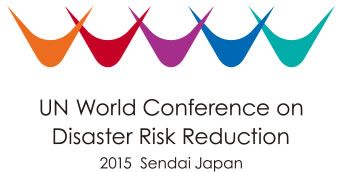Sendai Framework

The Sendai Framework was adopted at the World Conference on Disaster Risk Reduction in Sendai, Japan in 2015. It aims at substantially reducing disaster risk and losses in lives, livelihoods and health and in the economic, physical, social, cultural and environmental assets of persons, businesses, communities and countries. As cities are often particularly affected by climate change risks and other external shocks, they also need to be actively engaged and addressed when implementing disaster risk management and adaptation measures to increase resilience to stresses and shocks.
The original text of the Sendai Framework can be found here.
Resilience in the City WORKS Toolkit
With the aim of supporting cities in including aspects of resilience in their development and putting into practice the goals of the Sendai Framework, we have developed a City WORKS for Resilience toolkit specifically focused on resilience. City WORKS for Resilience takes urban professionals from familiarising themselves with the concepts around resilience to analysing their cities under a “resilience” lens in order to ensure that the actions taken pave the way for a more resilient future. To strengthen the message that resilience cannot be dissociated from sustainable development, most tools were inserted based on already-existing City WORKS tools. You can find the City WORKS for Resilience tools in the steps “understand current situation”, “identify measures”, “prioritise measures” and “plan for action”. Additionally, two entirely new tools have been developed: “Linking Urban Action to Resilience” and “Bankability Assessment”.
The resilience tools can be identified by these icons:
Some Background on City WORKS for Resilience
In the course of the Covid-19 pandemic, cities have been fighting against a backdrop of multiple existing shocks and stresses, and emerging vulnerabilities, while striving to put equity, economy and climate action at the centre of their recovery approaches. Within this, the notion of urban resilience has gained more attention and provides an orientation for cities to prepare for the future.
As the field of resilience is a very complex, some terms are clarified here:
Resilience is the capacity of a city’s systems, businesses, institutions, communities, and individuals to survive, adapt, and grow, no matter what chronic stresses and acute shocks they experience. By strengthening its underlying fabric and deepening its understanding of the risks that threaten its stability, a city can improve its overall trajectory and the well-being of its citizens, and prosper in the face of challenges both expected and as yet unimagined.
Recovery from shocks or stress events, such as the COVID-19 pandemic, flooding or migration crisis, can happen in different ways, ranging from “building back” the way things used to be before, to taking the opportunity to “build back better” or even “build forward”. Green recovery, more specifically, seeks to combine an economic recovery from the COVID-19 pandemic with combating climate change. Just Recovery, on the other hand, seeks to overcome inequalities and promotes inclusive societies. Combining the two with the notion of resilience, a Resilient Recovery seeks transformational action by fostering adaptive socioeconomic models and increased social, economic and environmental benefits.
Shock is a sudden-onset event, leading, potentially, to adverse impact unfolded within hours or days in the urban areas.
Stress is defined as a chronic pressure whose cumulative impact undermine city’s capacity for resilience.
Note: Whilst “City WORKS for Resilience” includes references to all elements above, “City WORKS for Climate Action” allows for an even deeper dive into the “Climate-focused” dimension.
Further References
Toolkit for a Resilient Recovery – developed by R-Cities as a response to the COVID-19 pandemic.
PreventionWeb – Global knowledge sharing platform for disaster risk reduction and resilience
Urban Resilience Hub – strengthening the capacities of local governments in cities to design, implement and monitor sustainable, resilient and inclusive COVID-19 economic and financial recovery plans.
Learning tools of UCLG (United Cities and Local Governments) – creation and dissemination of knowledge and resources for local and regional governments to achieve inclusive, resilient, and sustainable communities. Several facilitation guides (Learning Modules) for the localisation of the SDGs and the Sendai Framework for DRR (Disaster Risk Reduction), built with a training-of-trainers approach, as well as self-paced e-learning modules: https://learning.uclg.org and https://learningwith.uclg.org/.